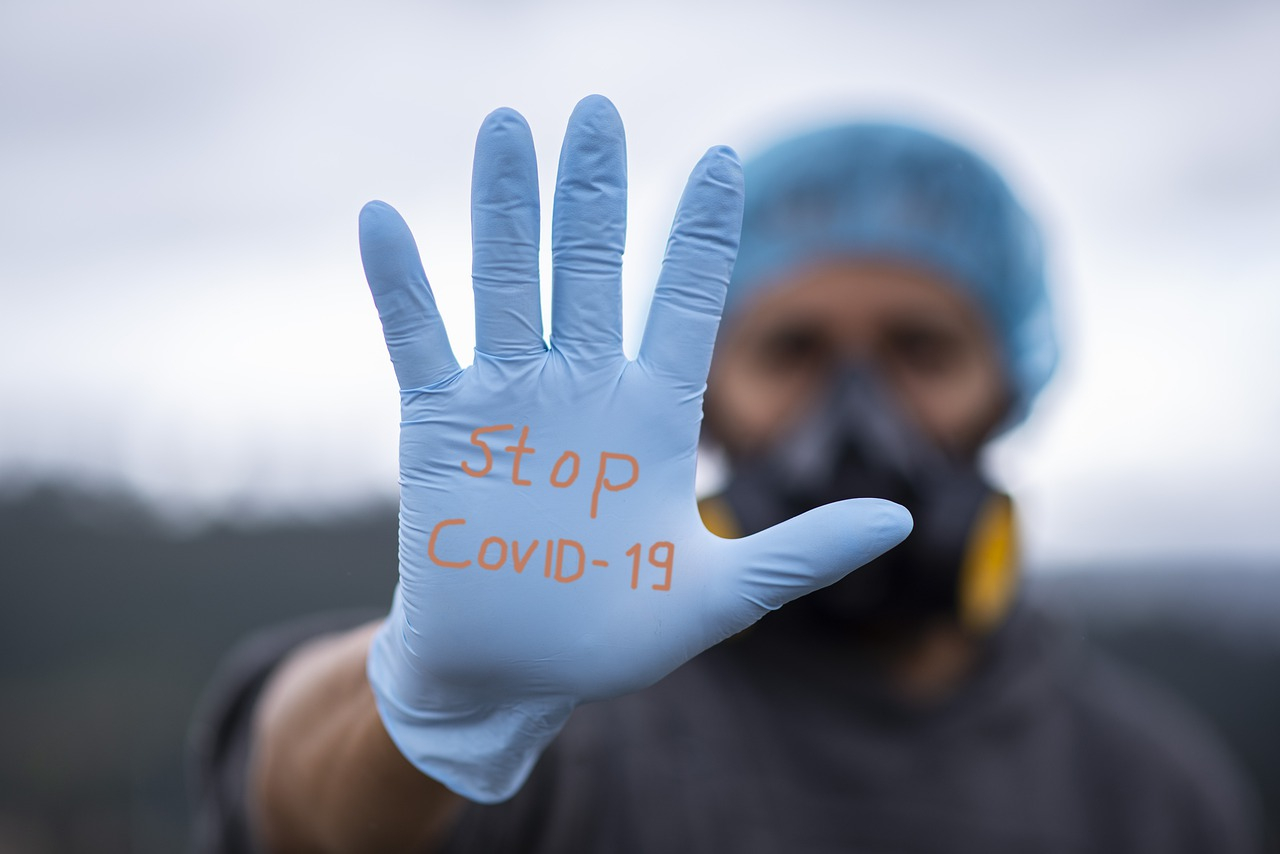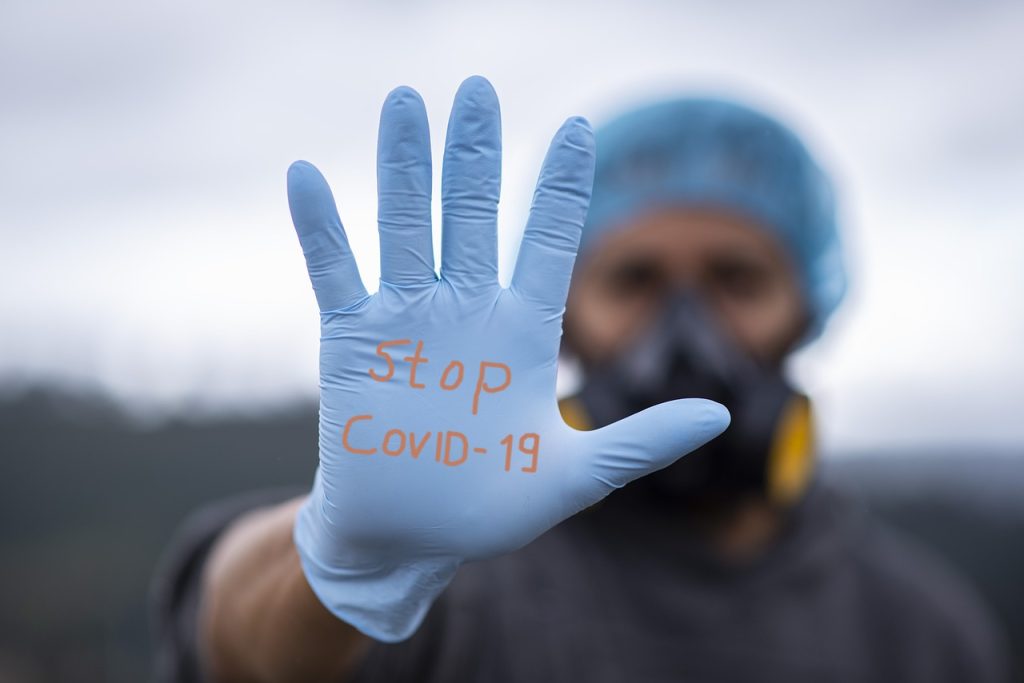
November 30, 2020 – At today’s government session, which Prime Minister Andrej Plenkovic led from home in self-isolation, the fines for violating measures in Croatia were announced. They have yet to be confirmed by parliament.
Index.hr reports that Minister Beros read the proposal of new fines. Thus, a natural person can be fined HRK 500 for non-compliance with the prescribed measures, i.e. the obligation to properly wear a face mask or medical mask.
A fine of HRK 5,000 to 10,000 is prescribed for the owner of private property if they organize or allow a private gathering against the provisions of the law.
Bozinovic also announced new measures at the borders, and Maric, Aladrovic, and Coric presented new measures to help entrepreneurs.
In the beginning, Plenkovic expressed regret over the incident in Vukovar.
“As for the pandemic, the numbers are still high today. Unfortunately, 74 people have died, the most so far, due to the high numbers in recent weeks. We are still in a very serious phase of the epidemic, I call everyone to be responsible, so we have taken restrictive measures,” he said.
He then said he would discuss amending the Infectious Diseases Protection Act so that fines for individuals could be defined.
“We have based our fight against coronavirus on trust between citizens and the state. We are convinced that most fellow citizens understand the circumstances, but we also think that such a tool is necessary given that certain irresponsible individuals endanger the health of others. That is why we will propose changes to the law to the parliament,” said Plenkovic, who chaired the government session via a video link from self-isolation.
Furthermore, Plenkovic revealed details of new measures for entrepreneurs.
“The new package of measures to help the part of the economy whose activities have been suspended because of COVID-19 will amount to HRK 2.1 billion, and will include subsidies for salaries, fixed costs and COVID loans,” said Plenkovic.
These measures, he said, are in line with the policy of preserving jobs in the private sector. He claimed that the government has so far preserved 630,000 jobs and helped 107,000 companies, paying a total of HRK 7.4 billion.
He announced the continuation of support of HRK 4,000 for workers’ salaries during the suspension of operations, with the exemption from paying contributions. This is a total net amount of HRK 320 million, and when the contributions are added up, it is HRK 470 million.
The government will also cover part or all of the fixed costs during the suspension of the sectors affected by the measures, if their turnover in December falls by at least 60 percent compared to last December. According to government estimates, the measure should cost HRK 250 million. In addition, he added, in cooperation with HAMAG-BICRO, a new package of COVID loans was prepared in the total amount of HRK 1.3 billion.
“We base our support for the private sector on these three points, i.e., those affected by the anti-epidemic measures currently in force. All in all, the package will amount to HRK 2.1 billion,” Plenkovic said.
“In this way, the government meets the needs of the economy, entrepreneurs and employees and strives, as before, to help citizens, the economy and entrepreneurs in the very specific year of 2020,” he added.
Minister Beros read the statistics on the number infected.
“The Ministry of Health called on the Headquarters to submit amended plans for the care of people suffering from COVID-19, as well as a notification on additional care,” Beros said.
“Everything we do will not yield results if the personal responsibility of each individual remains,” he said, adding that the HQ’s measures are there for a reason.
Bozinovic reiterated the latest measures taken this weekend.
“As far as supervision is concerned, inspectors and the police have made over 4,000 inspections, they have issued 605 warnings. Forty-four misdemeanor orders have been or will be submitted,” Bozinovic read.
“A new decision has been made on border crossings, and it is tied to European regions. Passengers coming from EU green areas do not need a PCR test or any other condition to enter Croatia. All others need a negative PCR test that is not older than 48 hours or are tested on arrival in Croatia and in self-isolation to await the test result.
But at the moment, the only green region in the EU is the island of Fasta in Finland,” Bozinovic said.
“As for third-country nationals, they can cross the border with a negative PCR test,” he said. “EU citizens coming from third countries can enter Croatia with a negative PCR test,” Bozinovic added.
Entry without a negative PCR test for EU citizens is allowed, for example, for seafarers and workers in the transport sector, transport providers, diplomats, staff of international organizations, persons traveling for urgent reasons, passengers in transit with the obligation to leave the country within 12 hours and patients traveling for necessary health reasons.
Border health workers, pupils, students and interns who travel every day do not have to have a negative PCR test, provided that they do not stay inside or outside Croatia for more than 12 hours.
Beros continued on fines for violating the measures.
“The bill prescribes a new security measure of the obligation to wear a face mask or medical mask properly, a ban or restriction on holding public events and gatherings, and a ban or restriction on holding private gatherings,” Beros said at the government session.
The amendment to the law points out that according to the current course of COVID-19, the need to properly wear face masks or medical masks so as to cover the mouth and nose is unequivocally indicated, which reduces the possible risk of transmission. Proper use of masks is most important when people are indoors and when social distancing is difficult to implement or maintain.
The bill stipulates that the implementation of supervision over the application of safety measures for the protection of the population from infectious diseases is also carried out by police officers, inspectors of state administration bodies responsible for civil protection, inspectors of the State Inspectorate and inspectors of other state administration bodies.
Also, a fine for misdemeanors is prescribed for legal entities in the amount of HRK 10,000 to HRK 40,000 in case of non-compliance with measures prescribed by law, i.e., if they do not respect the ban or restriction on holding public events and gatherings or disrespect the ban or restriction on private gatherings.
A fine of HRK 5,000 to 10,000 is prescribed for misdemeanors of a responsible person in a legal entity, as well as craftspeople and natural persons who perform other independent activities.
For a misdemeanor of a natural person, a fine of HRK 500 is prescribed in case of non-compliance with the prescribed measures, or the obligation to properly wear a face mask or medical mask.
A fine of HRK 5,000 to 10,000 is prescribed for the private property owner if they organize or allow a private gathering against the provisions of the law.
Also, the provision on collecting fines at the place where the misdemeanor was committed is changed in accordance with the provisions of the Misdemeanor Law. Thus, the fine may be collected at the place where the offense was committed by a person authorized to supervise the implementation of safety measures to protect the population from infectious diseases.
To read more about coronavirus in Croatia, follow TCN’s dedicated page.











